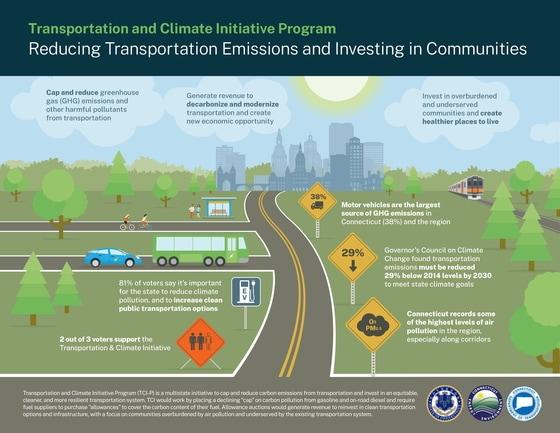Massachusetts is taking decisive steps to prepare its transportation infrastructure for the escalating impacts of climate change. As one of the New England states with a diverse geography and a rich history,the state faces increasing risks from extreme weather events,rising sea levels,and shifting environmental conditions.Officials and planners are now focusing on resilience and sustainability to safeguard roads, bridges, transit systems, and ports vital to the state’s economy and communities. This proactive shift aims to ensure that Massachusetts remains connected and accessible amid growing climate challenges, reflecting its broader commitment to innovation and environmental stewardship[[1]](https://www.britannica.com/place/Massachusetts)[[2]](https://www.jagranjosh.com/us/explainers/all-about-massachusetts-1860000337).
Table of Contents
- Massachusetts Advances Infrastructure to Withstand Extreme Weather
- Expanding Public Transit to Reduce Carbon Emissions and Congestion
- Investing in Green Technology for Sustainable Transportation Solutions
- Community Engagement Drives Climate-Resilient Mobility Plans
- Closing Remarks
Massachusetts Advances Infrastructure to Withstand Extreme Weather
Massachusetts is accelerating efforts to strengthen its transportation infrastructure in response to the increasing threats posed by extreme weather events. State agencies are investing in the modernization of roads, bridges, and transit systems to enhance resilience against flooding, high winds, and severe storms. Recent projects include the elevation of vulnerable highways,reinforcement of critical bridge supports,and enhancements to stormwater management systems designed to endure record rainfall. These upgrades are crucial for maintaining the continuity of commerce and daily commuting in a state historically prone to nor’easters and hurricanes.
Key elements in the state’s strategy emphasize:
- Integration of advanced climate modeling to forecast and mitigate future risks;
- Retrofitting public transit facilities with flood barriers and backup power systems;
- Collaboration with local governments to synchronize emergency response and infrastructure rebuilding;
- Promotion of green infrastructure such as permeable pavements and urban tree canopies to reduce heat and manage stormwater.
With these proactive measures, Massachusetts aims to set a benchmark for states nationwide on confronting the growing challenges of climate change through robust infrastructure investments.
Expanding Public Transit to Reduce Carbon Emissions and Congestion
Massachusetts is accelerating efforts to expand its public transit network as part of a broader climate strategy aimed at slashing greenhouse gas emissions and alleviating traffic congestion. The state’s investment in electrified buses, increased frequency of service, and extensions to rail lines underscore a commitment to greener, more efficient mobility options. Officials emphasize that these improvements will not only reduce reliance on individual car travel but also support equity by providing affordable, reliable transportation access across urban and suburban communities.
Key initiatives include:
- Deployment of zero-emission electric buses across the MBTA fleet
- Expansion of commuter rail service to densely populated and underserved areas
- Infrastructure upgrades to facilitate safe biking and walking connections to transit hubs
- Implementation of real-time transit tracking and fare integration for seamless travel
By integrating these elements, Massachusetts aims to create a more resilient transportation system that directly combats carbon output while easing the daily commute burden for thousands. The state’s approach models how investing in green transit infrastructure can become a cornerstone of climate action and urban planning.
Investing in Green Technology for Sustainable Transportation Solutions
Massachusetts is accelerating its commitment to sustainable transportation by channeling meaningful investments into cutting-edge green technologies. These initiatives focus on electrifying public transit fleets,expanding the infrastructure for electric vehicles,and integrating renewable energy systems. The state’s strategy harnesses innovation to reduce greenhouse gas emissions while adapting transportation networks to withstand climate change impacts.
- Electrification of buses and rail systems, aiming to decrease reliance on fossil fuels and improve air quality.
- Expansion of EV charging stations along critical corridors to support growing adoption of electric cars and trucks.
- Smart grid integration to optimize energy use and ensure resilience during extreme weather events.
By prioritizing these sustainable transportation solutions, Massachusetts not only seeks to meet its aspiring climate goals but also to foster economic growth and public health benefits. The investments are coordinated to improve mass transit accessibility, reduce traffic congestion, and enhance the overall efficiency of the state’s transportation infrastructure, positioning Massachusetts as a national leader in climate-responsive mobility.
Community Engagement Drives Climate-Resilient Mobility Plans
Local voices have become pivotal in shaping transportation strategies across Massachusetts. State agencies and city planners are actively collaborating with residents, advocacy groups, and businesses to ensure that mobility systems are not only sustainable but also resilient to escalating climate threats. Through workshops, public forums, and digital platforms, the community’s diverse perspectives help identify vulnerabilities in transit infrastructure affected by flooding, heatwaves, and extreme weather events.
These inclusive efforts foster clear decision-making and boost public trust in climate resilience initiatives. Key elements emerging from community input include:
- Prioritizing upgrades to critical transit corridors with high commuter use
- Enhancing pedestrian and cycling networks that facilitate low-emission travel
- Implementing real-time communication systems to alert travelers during environmental disruptions
- Promoting equity by addressing access disparities for vulnerable populations
By anchoring mobility plans in community engagement, Massachusetts is paving the way for a transportation future that is adaptive, inclusive, and capable of withstanding the uncertainties posed by climate change.
Closing Remarks
As Massachusetts accelerates efforts to future-proof its transportation infrastructure against the growing threats of climate change, the state stands at the forefront of resilience planning in the nation. With strategic investments aimed at reducing emissions, enhancing public transit, and safeguarding coastal and urban transit networks, Massachusetts is setting a benchmark for how states can proactively address environmental challenges. The coming years will reveal how these initiatives transform mobility and protect communities, as this historic state charts a course toward sustainable and resilient transportation systems for all its residents.For more insights into Massachusetts’ infrastructure and climate initiatives, visit official state resources and local news outlets.

